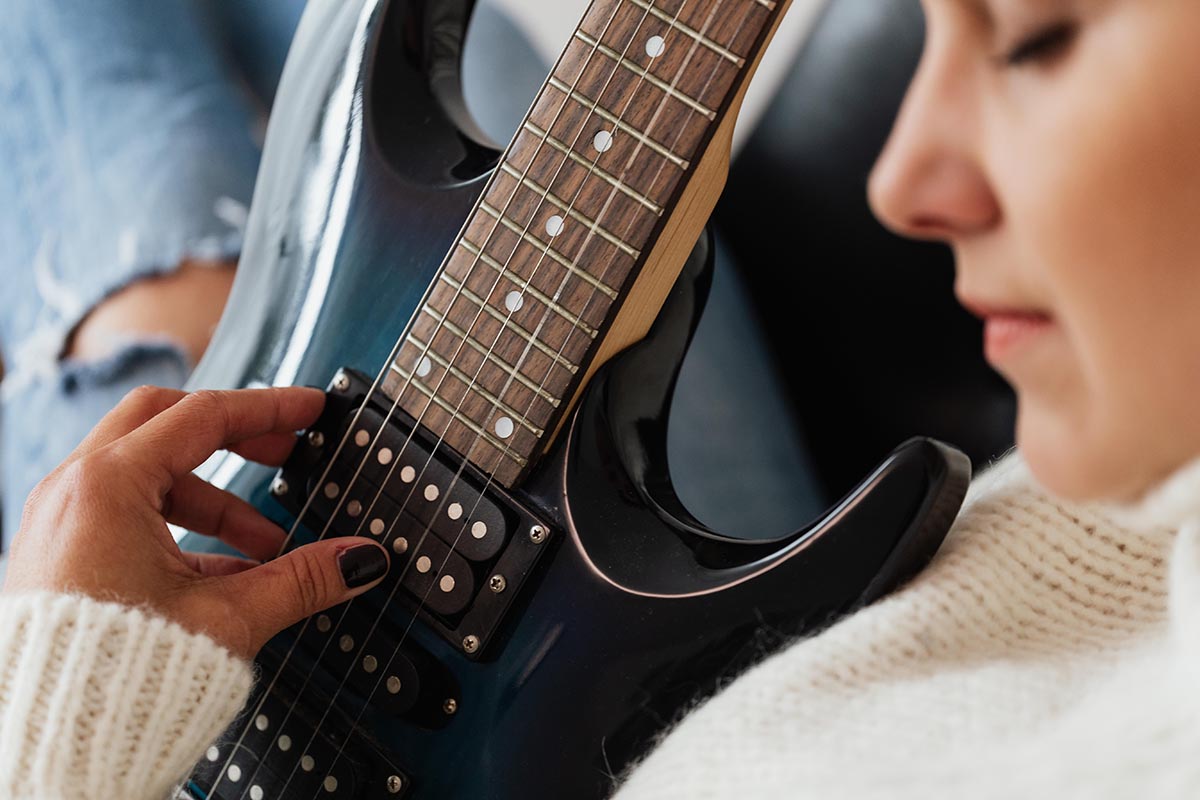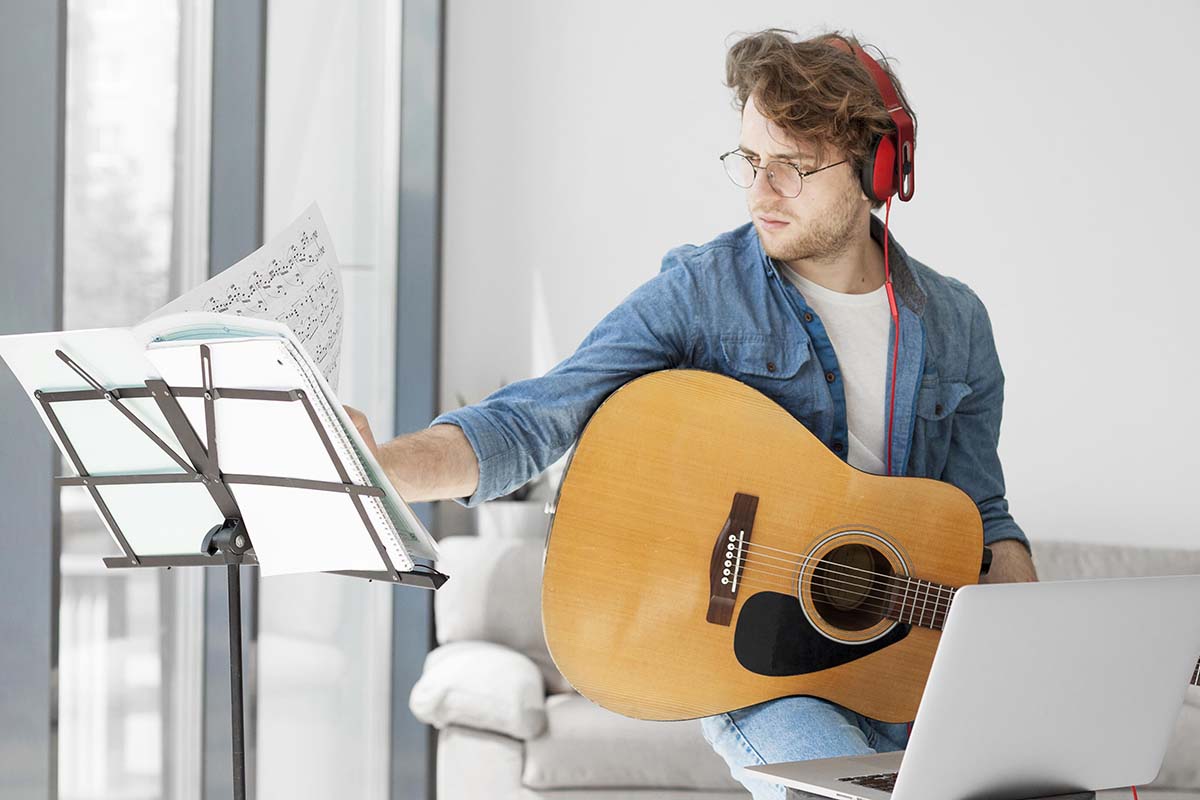How to Avoid Quitting in the First Month of Playing Guitar
The first month of playing the guitar is crucial. Ninety percent of people who take up a new instrument quit in the first six months, and for guitarists most of this is in the first month or two.
There is a number of reasons a person might give up on the guitar, from finding it hard to get the thing to sound good to just not finding a good practice routine that makes them actually want to spend their free time wrestling with an unfamiliar instrument.
However, this doesn’t have to be the case. By taking a few simple steps and learning a few habits right up front, you can turn a Christmas or birthday gift into a lifelong habit.
Of course, this list could include fifty or more tips, but really there are three key things that will have the biggest impact on you as a new player. Take these tips on board and you’ll find yourself with a huge head start over the 90% who won’t make it.
Buy the right guitar
People in real estate say you make your money when you buy, meaning getting a good deal upfront decides what kind of profit you make when you sell.
By the same measure, picking the right guitar has a huge impact on your success with the instrument.
For beginner guitarists, the physical act of pressing down on the strings with the fingers on your left hand enough to make notes ring out clear is one of the toughest things to master. Many beginner guitars have what’s known as “high action”, which means the strings are far from the fretboard, necessitating more pressure and strength in the fingers to play the guitar.
The best way to get around this is to pick a guitar that’s easy to play. Depending on the type of music you want to play, pick a good quality electric guitar (which by design have low action), or if you’re looking at playing acoustic songs, pick a low action acoustic guitar to make things easier right off the bat.
Keep your guitar where you can see it
This is a very simple trick that many people miss out on. If you keep your guitar locked away in a case under the bed, you’re never going to find yourself spontaneously strumming a few chords, and really the key to getting better at the guitar is to play it as often as possible, right?
Get yourself a guitar stand and keep the guitar where you tend to hang out – if you spend your free time on the couch, put the stand next to the couch so that you’ll pick up the guitar during the commercials and play a few notes. If you spend a lot of time working or studying from home, put the guitar next to your desk so that you can take time between meetings or classes to play along with a song or two.
By having the guitar close to hand, you’re more likely to pick it up on a whim, and these five or ten-minute sessions here and there are huge in terms of making sure the things you learn from your practice sessions stay under your fingers.
Another benefit of this becomes apparent later when you start writing songs. Inspiration can hit at any moment, and many amazing songs have been forgotten in the time it takes to run upstairs and get your guitar out of a case in the closet. By having your guitar close at hand, you can pick it up as soon as a melody comes to mind, and quick craft that melody into a song.
Play what you enjoy
Finding a way to enjoy the guitar every time you play it is the key to long term success. Just about everyone who took piano lessons as a kid will tell you about how much they hated the hours of drilling scales over and over and over. On the other hand, people who learn the guitar by playing along with their favorite songs are finding a smart way to turn the process of studying and learning the fundamentals of the guitar into a fun activity that they’ll want to do over and over.
Another great way to turn practice into a game – literally – is to find one of the new breed of guitar video games that has the songs you like and jam out alone or with friends. Better still, as you get better at playing the guitar through practicing your instrument, you’ll make your friends look like amateurs when they try to take you on a guitar hero and your newfound guitar skills make them look like fools.
In The First Month of Playing Guitar: Conclusion
For most people who make it through the first couple of months, playing guitar is a lifelong passion. Not only is it personally fulfilling to see your practice turn into progress, but it also provides you with a creative outlet and can open so many doors for you in terms of meeting people, playing in bands, and maybe even becoming a career.
Take good care to start yourself off right and you’ll find yourself looking back on your early days fondly.



















